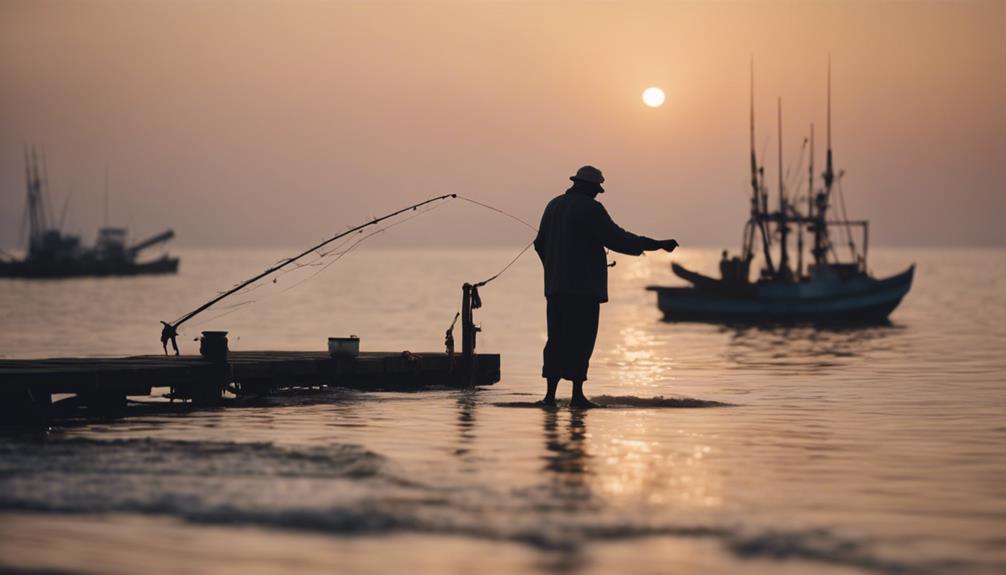Fishing is one of the most popular outdoor activities, providing relaxation and recreation for millions of enthusiasts worldwide. However, before you grab your fishing rod and head to the nearest lake or river, you may wonder: do you need a license to fish? This comprehensive guide will explore this essential question and provide valuable insights into fishing licenses, regulations, and best practices.
Understanding Fishing Licenses: An Overview
Fishing licenses serve as a legal requirement for participating in recreational fishing activities. Various governments and regulatory bodies implement these licenses to manage fish populations, protect aquatic ecosystems, and ensure sustainable fishing practices. The requirement for a fishing license often varies by location, type of water body (freshwater vs. saltwater), and the species of fish being targeted. In many regions, individuals aged 16 and older are generally required to obtain a fishing license. However, there are exceptions for certain age groups or circumstances, such as free fishing days or special permits for disabled anglers.
Why Are Fishing Licenses Necessary?
The primary purpose of requiring a fishing license is to promote responsible fishing practices and ensure the conservation of aquatic resources. By regulating who can fish and how much fish can be caught, authorities can effectively monitor fish populations and implement necessary measures to protect endangered species. Moreover, funds generated from fishing licenses often contribute to wildlife conservation programs, habitat restoration, and educational initiatives aimed at fostering a sustainable fishing culture. Understanding the importance of fishing licenses can help anglers appreciate their role in preserving the natural environment.
Where to Obtain a Fishing License
Obtaining a fishing license is a straightforward process that can typically be done online, over the phone, or in person at designated locations. Most states and countries have dedicated wildlife or fisheries departments that facilitate the licensing process. Websites are often user-friendly platforms where you can select the type of license you need based on your fishing preferences. Be sure to have personal information, such as your identification and, in some cases, proof of residency, ready when applying for a fishing license. Additionally, certain retailers, such as sporting goods stores, may also sell fishing licenses on-site.
Types of Fishing Licenses Available
Various types of fishing licenses cater to different fishing activities, demographics, and water bodies. Some common types include:
1. Annual Fishing License: This is the standard license that allows an individual to fish throughout the year.
2. Non-Resident Fishing License: For those who wish to fish in a state or country where they do not reside, a non-resident license is typically required, often at a higher fee.
3. Short-Term License: Ideal for tourists or casual anglers, these licenses allow fishing for a limited duration, such as a day or a week.
4. Special Permits: Certain regions may require additional permits for fishing specific species, using particular methods (like bowfishing), or accessing private waters.
Understanding the different types of fishing licenses available is crucial for ensuring compliance with local regulations.
Exceptions to the Fishing License Requirement
While most individuals need a fishing license, several exceptions exist. Many regions have designated free fishing days, where residents and non-residents can fish without needing a license. These days are often promoted to encourage community engagement in fishing and introduce newcomers to the sport. Additionally, some states offer exemptions for certain groups, such as disabled veterans, children under a specific age, or individuals participating in educational programs. Always check local regulations to determine if you qualify for any exemptions.
The Consequences of Fishing Without a License
Fishing without a proper license can lead to significant consequences, including hefty fines, confiscation of fishing equipment, and even criminal charges in severe cases. Authorities enforce fishing regulations to protect natural resources and promote responsible angling. Fines for fishing without a license can vary widely, depending on the location and the number of offenses. In some cases, repeat offenders may face increased penalties or restrictions on future fishing activities. To avoid these issues, always ensure you are properly licensed before casting your line.
Tips for Responsible Fishing Practices
In addition to obtaining a fishing license, practicing responsible fishing is essential for preserving aquatic ecosystems. Here are some tips to follow:
1. Catch and Release: If you are not fishing for food, consider practicing catch and release to maintain fish populations.
2. Stay Informed: Familiarize yourself with local fishing regulations, including size and bag limits for different species.
3. Use Proper Gear: Ensure you use appropriate fishing gear to minimize harm to fish and their habitats.
4. Dispose of Waste Properly: Always clean up after your fishing trips and dispose of trash and fishing line responsibly to protect wildlife.
By adhering to these guidelines, you can enjoy your fishing experience while contributing to the sustainability of fish populations and their habitats.
Conclusion: Your Fishing License Matters
In summary, the question “do you need a license to fish?” is answered with a resounding yes in most cases. Fishing licenses are essential for responsible angling, conservation efforts, and the protection of aquatic ecosystems. Understanding the types of licenses available, where to obtain them, and the consequences of fishing without one can enhance your fishing experience and support sustainable practices. Whether you are a seasoned angler or just starting, always ensure you are properly licensed and informed about local regulations to enjoy the great outdoors responsibly. Happy fishing!
